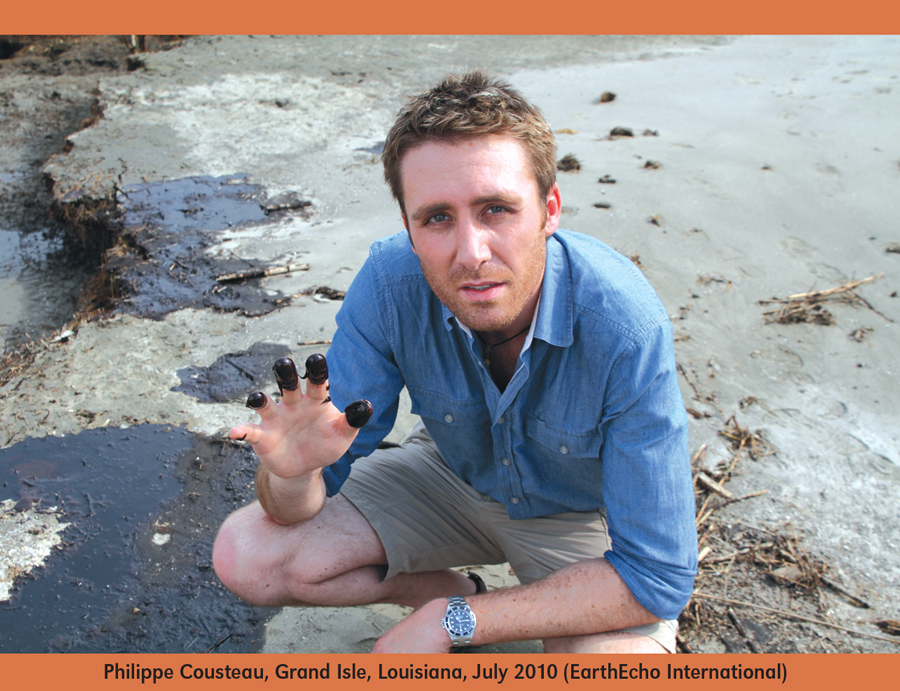Seaside Confidential with Philippe Cousteau, Jr.
Born only months after his father died at sea, Philippe Cousteau, Jr. was taught to dive by his legendary explorer grandfather, Jacques, who referred to him publicly as his "waterbabe." Today Philippe heads EarthEcho International, an advocacy group that educates the public while conducting valuable research. Recently, Philippe dove into the Gulf's oily soup and he is currently focused on his New Orleans-based STREAM program (Students Reporting Environmental Action through Media), which gives young people a chance to publicize environmental issues that they're witnessing. Part eco-warrior, part spiritual wanderer, Philippe spends almost as much time at sea as he does on terra firma. It is figuratively a second home for him, a place where he grew up and to which he continually returns.

conduit: What are some of the odder animals down there that people might not be familiar with?
phillippe cousteau: Most of the fantastic science fiction type animals live in the deepest parts of the ocean. The big viperfish and anglerfish, with huge teeth and phosphorescent, glowing, orbs hanging off their heads. Those are down there. And then, the animals of literature, of great adventures like 20,000 Leagues under the Sea, the giant squid and the things that capture our imagination, are also there in the deep ocean. But I think that there are still some amazing discoveries to be made, some fantastical animals that probably our imaginations can't even ponder.
conduit: I was reading recently that in the Gulf, there are organisms that live far beyond the reaches of light, and that they feed on oil.
cousteau: He was a smallish man; I would probably have an advantage. But he was a great writer and a fascinating human being.
conduit: Right.
cousteau: But then, in the late 1970s, scientists who had spent decades looking into space found that all they had to do was look down to the bottom of the ocean and there were organisms and bacteria that existed not on photosynthesis, but on chemosynthesis, animals that metabolize chemicals. And then they saw that there was a whole community of organisms, from crabs to fish to worms that fed off of those organisms. So, indeed, there are organisms not only in the Gulf, but everywhere that feed off of various chemical compounds, some of those found in oil. However, they move slowly and it is nothing that will remove all of the oil anytime soon.
conduit: So it's propaganda that the creatures in the depths of the Gulf are going to take care of the oil spill?
cousteau: Well, it's true, they will eventually to a large degree. However, the timeline that has been bandied about lately is premature at best. We know from evidence in both the Exxon Valdez spill in Alaska in 1989 and the big oil spill off the Yucatan coast in Ixtoc in 1979 that it doesn't go away as quickly as industry and government would like it to. Unfortunately, it sticks around for a long time.
{back}

